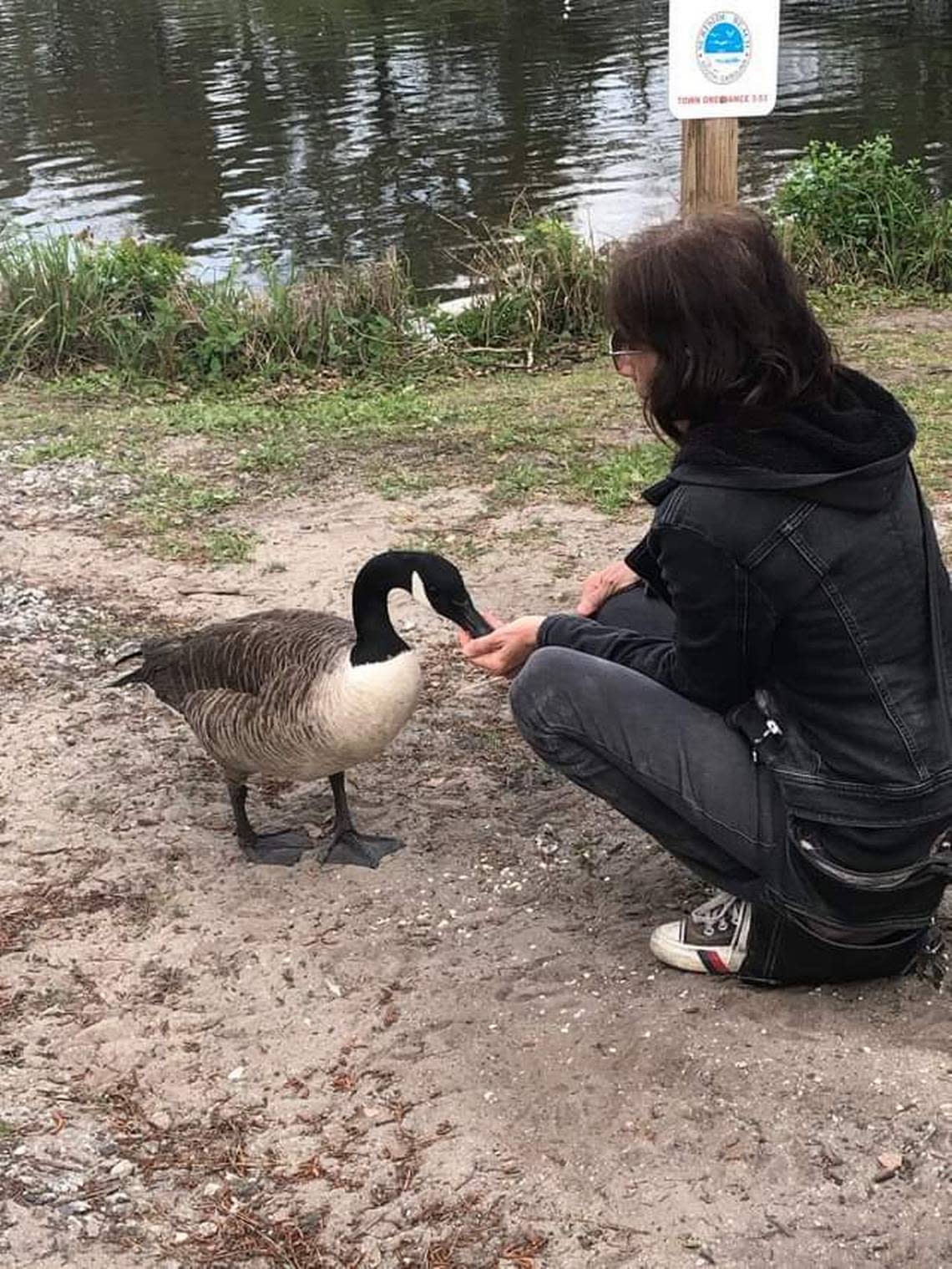Animal rights group says Surfside Beach geese saved from slaughter after pressure campaign

A flock of Canada geese that called the Surfside Beach Club home have reportedly been saved from slaughter, after the community’s homeowners’ association scuttled plans for a culling, a leading conservation group announced July 17.
“A lot of people who live in these communities don’t even know this is going on. Their boards are making decisions without consulting the people that live there,” Lisa Levinson, director of sustainable activism campaigns for In Defense of Animals, said. “This is going on at a much larger scale than people realize.”
HOA officials could not immediately be reached for comment, but Levinson said grassroots efforts by local animal rights activists warded off the killing of an unknown number of geese.
Levinson said volunteers would patrol the area during pre-dawn hours, ready to record and publish video of the animals being killed.
“They do it every year here. Whether or not I catch it on film I know it happens, and it happens a lot,” area resident and self-proclaimed “goose whisperer” Maria Pesce. “And it shouldn’t happen at all.”
In Defense of Animals has pressured Surfside Beach officials for more than a year to develop a mitigation plan using non-lethal methods so the waterfowl can live harmoniously among residents.
More than 25,000 people signed a pair of petitions drafted by the San Rafael, Calif.-based nonprofit urging the town and its private developments to stop killing geese as a means of population control — even threatening a boycott of the tourism-reliant community
“This is just one little area. Think of how much this is going on in the state and the country,” Levinson said.
Outside of established hunting seasons, state and federal permits are required for killing the birds, which number around 50,000 in South Carolina.
Under town ordinances, feeding of ducks and geese is prohibited because nourishing them “encourages waterfowl to halt their normal migrations and establish a residency in the town.
Violators can be fined up to $200 for doing so.
“The human hand-feeding of water fowl within the town limits is resulting in a public nuisance by the deposit of fecal matter, garbage, debris, and filth on surrounding properties, and destruction of lawns and ornamental shrubs,” the town’s ordinance states.
As development encroaches on habitat, goose encounters rise.
With their distinctive long, black necks, white cheeks and gray plumage, Canada geese can be attention grabbing. But with development creeping onto their natural habitat, the congregation of geese at public parks, swimming areas and water treatment facilities can make them a nuisance.
“As both human and resident Canada goose populations have increased in South Carolina, conflicts have increased,” the state Department of Natural Resources notes on its website.
The National Goose Protection Coalition on July 17 also announced that four Surside Beach subdivisions were cited for “Gander Slander,” a symbolic gesture the group uses to identify areas that use lethal goose control measures.
“We’re talking about animals that are highly bonded, and they’re doing this right in front of their babies,” Levinson said.
Major animal rights groups including the Humane Society say mass killings of geese doesn’t solve nuisance issues, since flocks will return the following year to the same place — drawn to planned developments for their generous sight lines and ample food and water supplies.
“It’s just done out of hate,” Pesce said. “There isn’t a goose problem. There’s a hate problem and I’ve seen it over and over and over again.”
Pesce is administrator of Surfside Beach Geese, a Facebook page devoted to the birds that oftentimes shows video footage of them being harassed or driven out of nesting areas.
“Everything matters, and you can’t play God and say, ‘I don’t want this animal here anymore,’” Pesce said.
There are many options to control geese without killing them, officials say.
In Defense of Animals offers several methods to pursue when it comes to nonlethal ways of managing a Canada geese problem, including:
Election of a wild animal expert to the town council and establishment of a Standing Animal Preservation Committee to resolve conflicts with area wildlife and implement humane, nonlethal coexistence strategies.
Hosting educational meetings to educate homeowners about non-lethal goose stewardship strategies to coexist peacefully with wild animals.
Restoration of native habitat, plant taller grasses, and/or native seed products that can be mowed short and naturally deters geese and ticks. Creation of a “tolerance zone” for geese away from human activities.
Purchase of sweeper machines or hire employees to remove goose feces with minimal investment.
Implementation of an egg oiling program with residents’ cooperation to reduce goose populations over time, along with new egg-oiling methods, like leaving one or two eggs un-oiled so geese won’t reproduce again in the same season.
Combination of sonic repellents and trained herd dogs.

